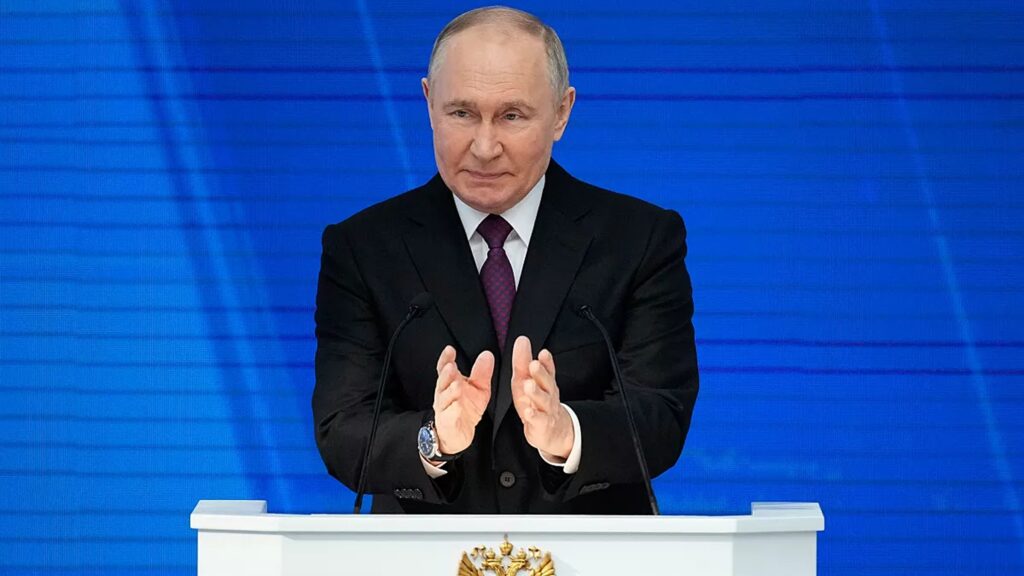In a significant announcement, President Vladimir Putin, who has been at the helm of Russia’s governance for 24 years, is gearing up for the upcoming election slated for March 15-17.
With an eye on further extending his tenure, Putin has unveiled an ambitious spending blueprint, pledging over 11.5 trillion roubles ($126.5 billion) towards infrastructure and social initiatives over the next six years.
In a speech delivered to Russia’s top officials on February 29, he emphasized, “This is the programme of a strong, sovereign country that confidently looks to the future,” asserting that Russia possesses the necessary resources and opportunities to realize these objectives.
This spending plan comes at a time when Russia’s 2024 budget anticipates total expenditures of 36.6 trillion roubles, marking a significant shift with military spending surpassing social investments amid the ongoing conflict in Ukraine, now entering its third year.
The proposed fiscal measures are estimated to burden the budget by up to 2 trillion roubles annually, according to Dmitry Polevoy, head of investments at Astra Asset Management.
Polevoy notes that while the financial outlay appears manageable at first glance, adverse economic conditions could necessitate identifying alternative financing sources.
Analysts from Sinara Investment Bank predict that Putin’s plan suggests a considerable fiscal boost that could lead to tax increases, especially targeting wealthier individuals and corporations.
In the lead-up to the election, Putin has outlined extensive commitments, including significant allocations for public infrastructure upgrades, healthcare, education, and technological advancements.
Among the key investments are 4.5 trillion roubles for public infrastructure modernization, including housing and heating systems; substantial funds for hospital construction and repair; and investments in educational facilities ranging from schools to universities.
The plan also encompasses enhancements to public spaces, airports, public transport, and cultural institutions, along with financial support for housing and social programs benefitting families and children.
The initiative extends to industrial and technological sectors, with allocations aimed at fostering digital platforms, supporting high-tech projects, and subsidizing interest rates for industrial production.
Additionally, regional support measures include writing off a substantial portion of Russian regions’ debt on budget loans, providing them significant financial relief.
As Russia approaches this critical electoral juncture, Putin’s comprehensive spending agenda underscores his vision of a robust, forward-looking nation, albeit amidst challenges posed by its international stance and domestic economic pressures.
